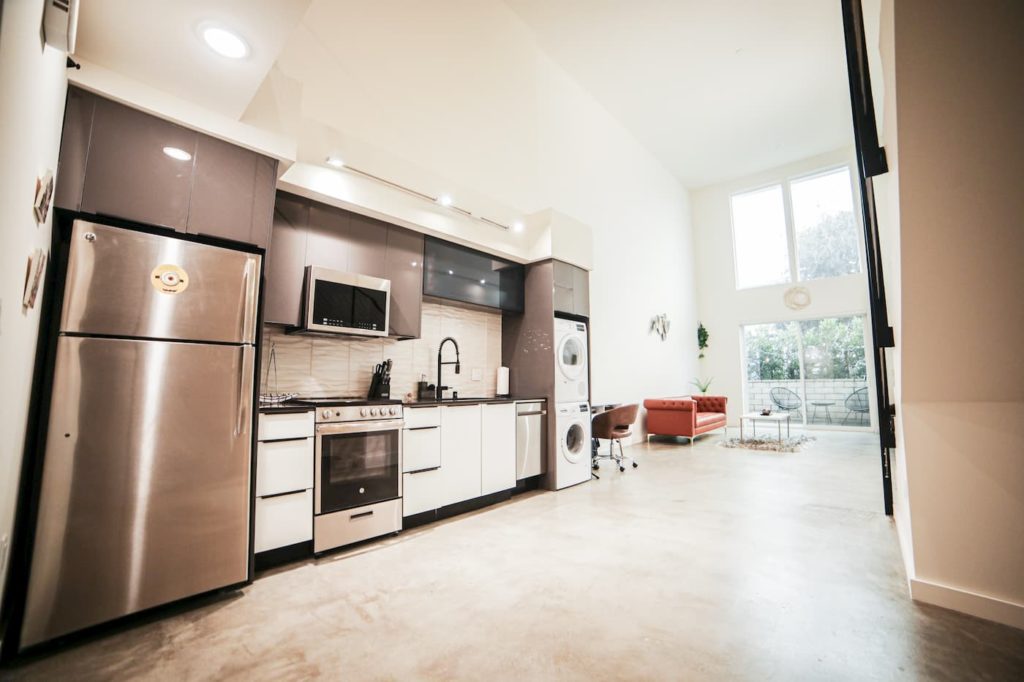Amid a slew of new landlord/tenant legislation — including a statewide rent control law and a temporary eviction moratorium — the Portland Housing Bureau recently passed the FAIR Housing Ordinance. Effective March 1st, 2020, this new law governs all rental properties located with the city limits.
The ordinance fundamentally alters how landlords conduct the application process and administer security deposits. One aspect of this new legislation focuses exclusively on appliance depreciation. It’s an effort by the city to limit how much of a tenant’s security deposit a landlord can use to repair or replace damaged items. While this may seem like a minor issue on the surface, it creates a documentation headache for investment property owners. What’s worse, violators of this new ordinance could face stiff financial penalties. So how does the new appliance depreciation ordinance work? Here’s what we know.
Changes to Rental Agreements
According to the new ordinance, property owners may only apply a tenant’s security deposit for the repair or replacement of “fixtures, appliances, equipment, or personal property” that they list in the rental agreement. That means property owners must conduct regular and thorough inventories of their homes and include listings for anything that might need to be repaired or replaced. But the ordinance doesn’t stop there. On top of the requirement to list every fixture, appliance, equipment, or personal property, landlords must also attach a value for each item.
Read the FAIR Housing Ordinance here.
New Depreciation Rules
Portland’s new ordinance takes this rule one step further. It’s not sufficient for property owners to list the replacement value of their fixtures, appliances, equipment, or personal property. Instead, they must discount the cost of these items based on an annual depreciation schedule established by the city.
- Appliances or equipment, which includes items like refrigerators, microwaves, ovens, and dishwashers, depreciate over 15 years. Or 6.67% per year.
- Fixtures that are carpets and window dressings depreciate over ten years or 10% per year.
- Permanently attached fixtures like faucets, sinks, certain flooring, and cabinetry depreciates over 20 years. Or 5% annually.
- All other non-structural elements not covered by the other categories depreciate over 30 years. Or 3.34% per year.
This means landlords must start tracking the age of every item in their rental property. Then, update the depreciated value of each item accordingly at every lease renewal. If a landlord chooses not to take on this level of detailed accounting, they have no way to recoup damage to their property.
Possible Exceptions
The new ordinance does carve out exceptions, but they’re vague and onerous for owners. For example, a landlord can provide documentation reasonably acceptable to a tenant that demonstrates why the city’s replacement calculation isn’t justified. However, they must include information like:
- “The current depreciated value of the fixture, appliance, equipment, or personal property.
- An explanation of why the depreciated value derived from the Depreciation Schedule is inapplicable for the fixture, appliance, equipment, or personal property.
- A justification of how the repair or alternative replacement cost of the fixture, appliance, equipment, or personal property has been calculated or determined.”
The question, of course, is who defines what is reasonable? According to this language, it appears that it’s the tenant.
FAIR Housing Ordinance Damages
Violations of the FAIR Housing Ordinance come with potentially steep penalties. According to the statute, “a landlord that fails to comply with any of the requirements of this section shall be liable to the tenant for an amount double to the amount of the tenant’s security deposit, reasonable attorney fees, and costs.” Those damages could add up fast for even the most well-meaning property owners.
This legislation is still new, and the full impact on the market remains unclear. So, it’s understandable why many property owners are concerned. While these requirements may be relatively simple to fulfill in smaller rental units, they may be impossible to manage in larger rental homes. No matter how large the rental unit, these requirements will take more time to satisfy. So will property owners continue raising rents to make up for these added costs? That’s unknown.
One thing’s for sure: it’s more important than ever to have ironclad leasing agreements you can rely on should a dispute arise. These agreements also must be regularly vetted by qualified attorneys and updated annually. Otherwise, property owners will lose out on the protections still available to them.
Property Managers Can Help
It’s tremendously difficult for the average person to keep track of all these legal changes. Most investment owners want to follow the law. But that’s hard when laws change so frequently. If you’re self-managing a rental property and are confused about the implications of ordinances like FAIR Housing, we can help. The team at Rent Portland Homes by Darla Andrew has decades of combined experience. We use that knowledge to help investment owners navigate and succeed in the rental market. If you’d like to leave the headache of self-management behind forever, contact Darla today at (503) 515-3170 or you can send us a message through our website. We’d love to tell you more.
